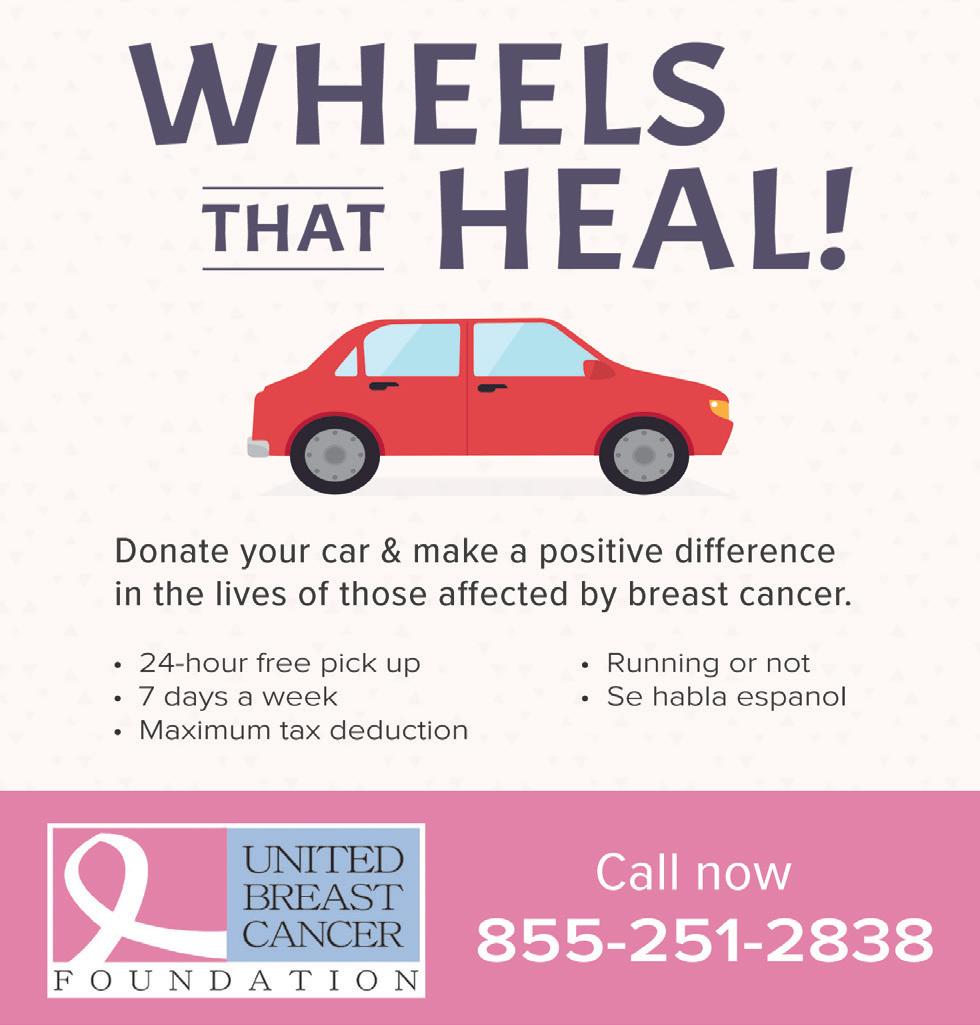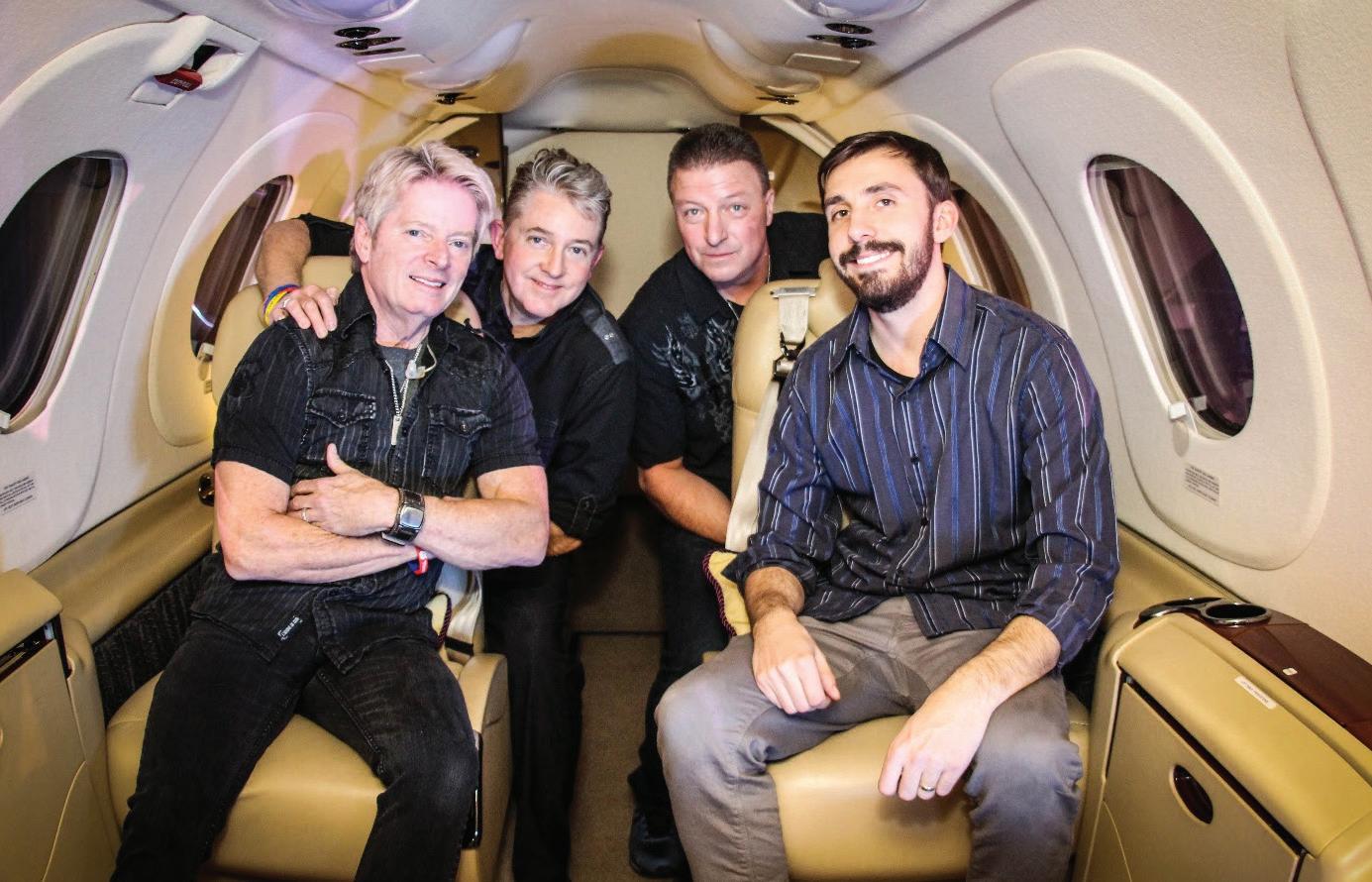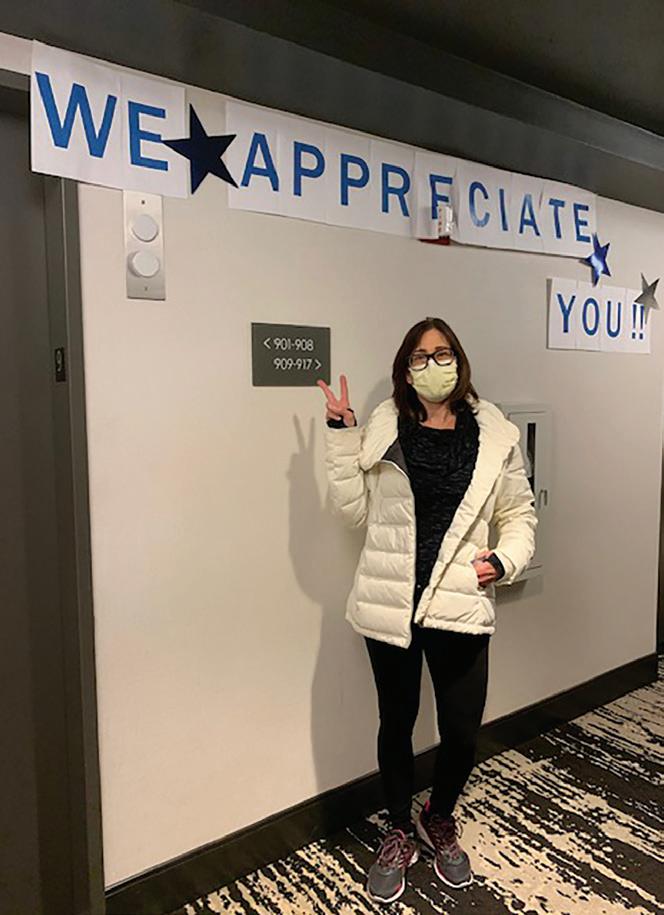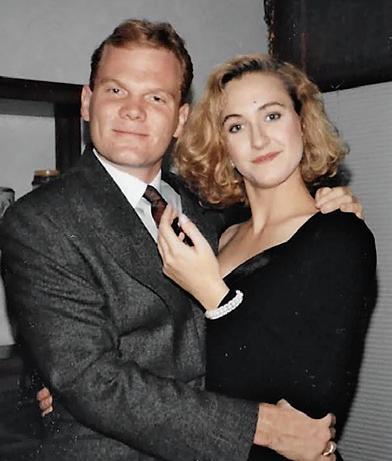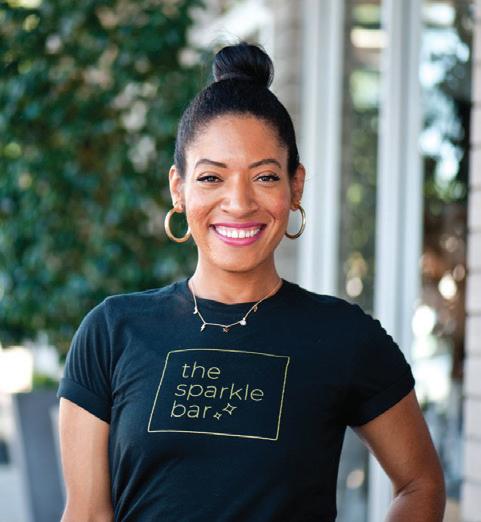NEIGHBORS
SCOTTSDALE PROGRESS | WWW.SCOTTSDALE.ORG | JUNE 7, 2020
Neighbors
Scottsdale.org l
@ScottsdaleProgress
21
/ScottsdaleProgress
Scottsdale nurse describes virus horror in Jersey BY KRISTINE CANNON Progress Staff Writer
“
My wife is a hero.” This is how Scottsdale resident Jeff Miller feels about his wife Karen, a nurse helping the overwhelmed hospitals in the New Jersey area. But Karen humbly laughs it off. “I don’t feel like I’m a hero,” she said. “I answered a call for something that was desperately needed.” A critical care nurse with more than 20 years of experience, Karen �lew to her home state of New Jersey in mid-April to work at Hackensack Meridian Health Palisades Medical Center. “One of the main reasons I came was because, as a nurse, I know what it’s like to be overworked, and I felt like the staff needed as much help as they could — and boy was I right,” said Karen, who works at Abrazo Arizona Heart Hospital. Hackensack Meridian Health Palisades Medical Center is a 202-bed nonpro�it hospital located in the township of North Bergen, a “small town close to the Big City” with a population of just over 60,000. “Every single patient in the hospital had COVID – every single one,” she said. On June 3, the New Jersey Department of Health reported 18,460 positive test results for COVID-19 and 1,192 deaths in Hudson County, where the hospital is located. When Karen arrived, however, New Jersey was experiencing its peak of COVID-19 hospitalizations: more than 8,000 across about 70 hospitals. “It’s been very taxing, physically, because of the fact that the people are very sick, and the staf�ing is not optimal,” she said. Karen explained that the usual, acceptable ICU ratio is one nurse to two patients. But on her �irst day, she took on four. “Sometimes we had �ive,” Karen added. “And these patients are critically ill and on life-support, every single one of them.”
single day,” Karen said. “What’s going on here is, it’s like shoveling snow in a snowstorm,” Karen explained. “We’re working our butts off for 14 hours a day trying to manage what needed to be managed, and everyone did all they could and are still doing.” The worst part is seeing families unable to say goodbye to loved ones before they die. “FaceTiming your dead grandma is about the worst thing I’ve ever seen,” she said. Social workers go around the hospital with an iPad and call dying or dead patients’ relatives. “We know they’re dying, and we hold the computer up for them to have face time, so they can see them before they’re dead; and we’ve actually FaceTimed Scottsdale nurse Karen Miller flew to New Jersey to help them when they’re dead. It a hospital overwhelmed by COVID-19 patients. (Courtesy of is just heartbreaking,” KarKaren Miller) en said. Karen works 36-hour assignments – Karen said the majority three 12-hour shifts. of her patients are older with underlying While the state has seen a drop in CO- medical conditions. VID-19 hospitalizations, Karen said that “I know there’s a lot of media hype about when she started, patients were lined up in all these people [who] are walking down the hospital waiting for a place to go. the street, and then next thing you know, “There literally was nowhere to put they’re short of breath and they’re dead. patients,” Karen said. “There were rapid- I’m not saying that that hasn’t happened; response calls continually throughout the I’m just saying that that’s a rarity still. Most day, code blue calls several times a day.” of the people were not very healthy to start Code Blue refers to a patient who re- with,” she said. quires resuscitation and intervention. Karen credits the decline in hospitaliza“I have been right in the face of these tions, in part, to residents wearing masks people while they have sputum and and social distancing. sweat and blood. I’m the one suctioning “Everyone was very compliant with the these people. I’m covered with it every guidelines that the government asked for
and mandated here. Masks, social distancing: People took it very, very seriously,” Karen said. “Arizona has just been very lucky in the fact that they haven’t had this kind of explosion of this pandemic,” she added. “And if there were any indication that this was starting to happen there, they should use this model as an example as to how to best control it.” On June 2, the Arizona Department of Health Services (AZDHS) reported more than 1,100 new coronavirus cases, the most in a single day. “In Arizona, people are kind of freaking out because they have to wear a mask. I’ve heard it, I’ve seen it,” Karen said. “Here, masks are required in all public buildings all the time or you can’t go in.” While it was “very dif�icult” for Karen to leave her family and friends, she said it is her “obligation and privilege to help where people are suffering.” “That’s what I do. At the end of the day, I take care of sick people, and if I’m able to do that and alleviate stress and share the workload with other colleagues, as well as provide much-needed care to the critically ill, that’s what my obligation is,” Karen said. Karen is still in New Jersey and plans to return to Arizona later this month. “I’ve personally experienced so much generosity and almost to the point where I feel a little guilty,” she admitted. Not only has Palisades Medical Center received food from local businesses, but they’ve also received food from celebrities, including Jessica Chastain and Eli Manning. “People say, ‘thank you,’ and I just want people to know, ‘you’re welcome.’ I did nothing that I wouldn’t do again if the need arose,” Karen said. “All of us here and all the people from all over the country, as well as everyone that lives here, is dedicated to getting this over with so we can get back to normal.”

